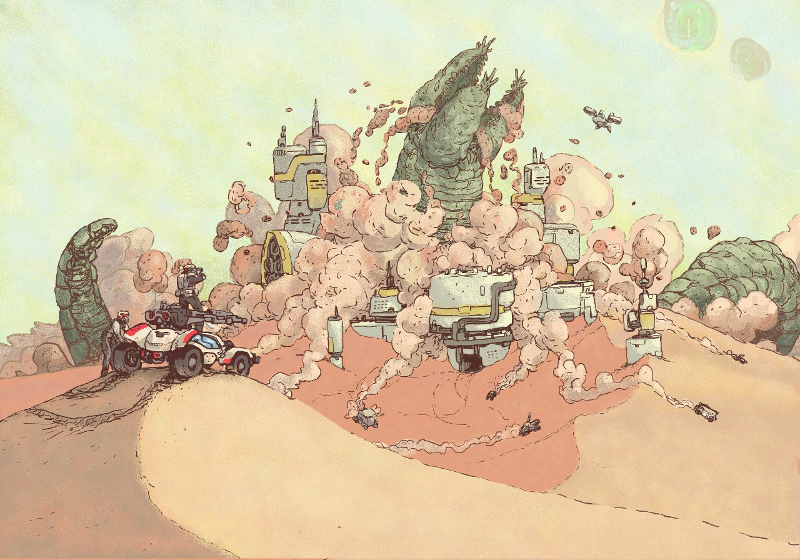
“Despite its name suggesting otherwise, Dune II was a first – a real-time strategy game that sprang out of the box with almost every gameplay attribute and control system seen in every RTS since.” Cam Winstanley digs into the origins of one of the most influential computer games in this Read-Only Memory feature from a couple of years back.
“Ultimately, it has no limitations, so therefore can’t inhabit the true transcendent artistic experience. It has nothing to transcend!” Nick Cave talks about the prospect of AI songwriting in a wide-ranging New Yorker interview.
“In the small city of Bremerton, Washington (pop. 44,000), a ferry ride away from Seattle, the shock is not that a typewriter repair and retail store has kept its doors open. Rather, it’s that there are two in the same city—and that another just opened about an hour’s drive north.” Glenn Fleishman visits a typewriter hotbed in the Pacific Northwest.
“When a store closes and the sign out front is removed, the ghostly imprint of the name often remains on the side of the building for years if no other business replaces it. There’s a term for the lingering outline of the still-readable letters in the buildup of dust and grime: label scar.” In The Walrus, Monika Warzecha looks at the unlikely return of Zellers, and the wave of nostalgia that’s allowed it.
“Roughly 2,600 gigatons of carbon simply cannot be burned into the atmosphere. Biophysical reality says those assets must be stranded, and economic reality says that can’t be done without causing a super-depression — or even perhaps a breakdown of civilization.” Science fiction writer Kim Stanley Robinson makes that case that we need to pay ourselves to decarbonize.

